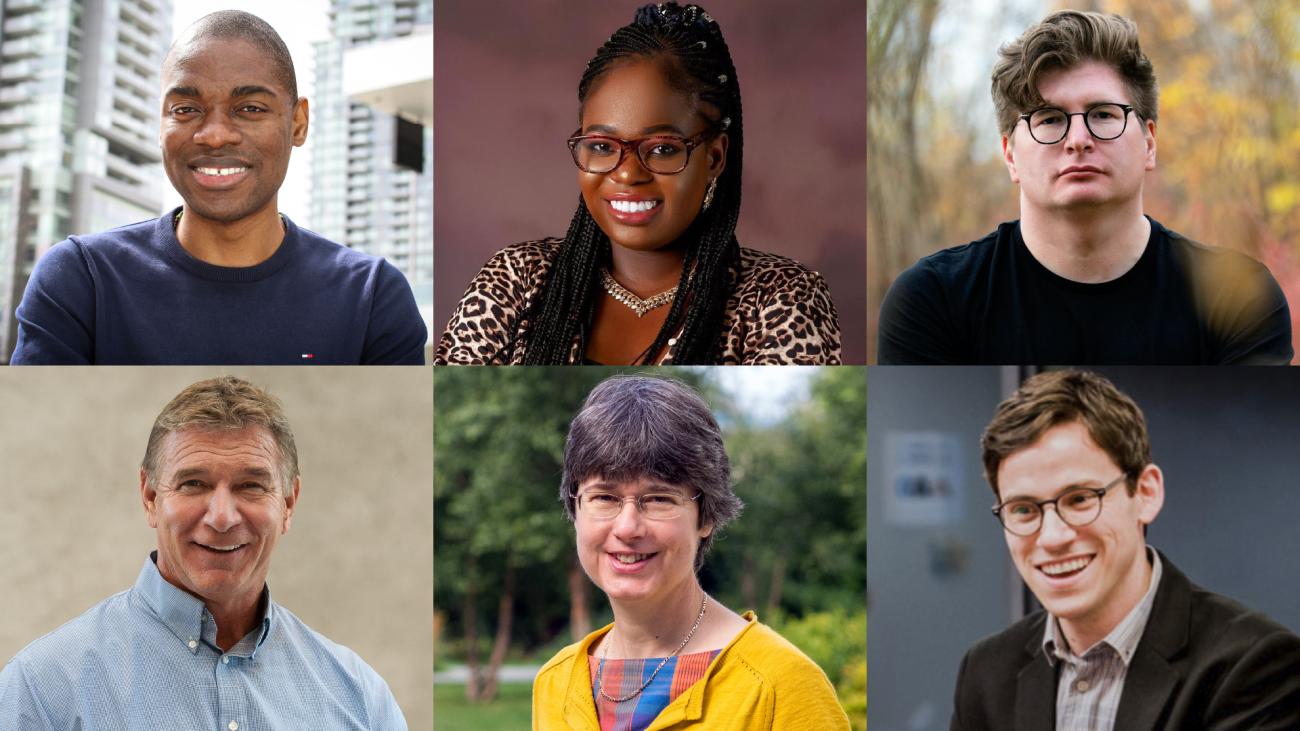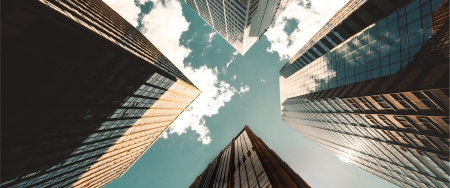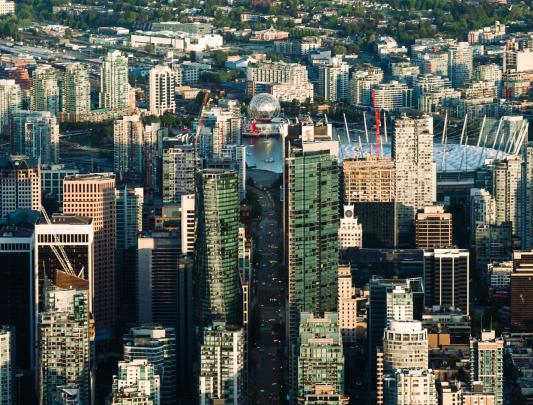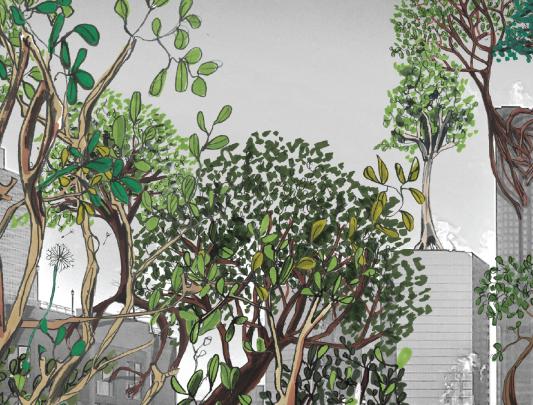Collective Wisdom
How do we make our cities more equitable and inclusive?
Rethink public engagement
Carey Doberstein
Assistant Professor, Department of Political Science
Public engagement as currently practiced by most governments is faced with high expectations but low satisfaction among many involved. Public consultation and engagement on housing developments and neighbourhood change can be so controversial and at times alarmist such that NIMBY (“Not in my back yard”) attitudes often prevail. This is especially prominent when concerning housing for vulnerable populations, including social housing, halfway housing for those suffering from addictions, and housing for refugees. In the context of deep polarization in Western democracies, the modes by which the public is consulted take deeper importance as they may exacerbate, rather than relieve, ideological or issues-based tension.
While consultations and public hearings certainly have a place in modern governance, they privilege, and arguably reinforce, a self-oriented view of political debates that are so often concerned with public goods that have implications well beyond the self. Rarely are citizens asked to estimate or articulate the views of neighbours or members of groups other than their own, contemplate the merits of opposing arguments, or their tolerance for policies with which they may disagree. Effective public engagement that challenges, rather than reinforces, inequalities thus requires rethinking when and how we invite the public to participate.
Understand inherited histories
Dallas Hunt, PhD’19
Assistant Professor, Department of English Language and Literatures
Great question! I think we need the expansion of resources and social services to those most in need. That said, we also, collectively, need to understand the inherited histories of the cities we inhabit. What that might do, potentially, is generate a generosity and gentleness that is needed sometimes in spaces like this. Not only how did we arrive here but who do we have obligations to? Basically, who tended to this land and who has historically? I think once we start to think about these questions it might lead to larger conversations as to how we can inhabit a shared space well, and in relation to one another (this can lead to organizing, or to policy that ensures positive outcomes for all, especially the most precarious). Because, in the end, we have to find ways to commune but also be undone by one another – what else is there?
Be mindful of unique challenges
Oludolapo Makinde, LLM’19
Liu Scholar and Doctoral Law Student
We can make our cities more equitable and inclusive by being mindful of the unique challenges faced by various groups of people and putting in place policies or measures specifically designed to address those challenges. In the context of the Black community, equity and inclusion translate to addressing issues of systemic racism that play out in educational institutions; income and employment; access to healthcare; housing and community; and the criminal justice system. It also entails being aware of the challenges that people with intersecting identities deal with. For example, Black females face an unemployment rate twice the national average, Black queer people struggle to find safe spaces, and Black males are stereotyped as criminally minded and get racially profiled. Active listening and engagement with marginalized groups on what they need to feel safe and included, and taking action on suggestions put forward, is essential in addressing these issues.
Remove barriers to opportunity and success
Rick Hansen, CC, OBC, BPE’86, LLD(hc)’87
Founder, Rick Hansen Foundation
To create truly equitable cities, we must shift our view of inclusion from simply accommodation and compliance to the minimum standards, to an elevated perspective of disability representation and expression in all places and aspects of society. We must put into action the DEIA values (diversity, equity, inclusion, and accessibility) we claim to embrace, by removing the physical and social barriers to opportunities and success for people with disabilities in government, business, education, athletics, and the arts – wherever they may wish to be.
As we build out new infrastructure and retrofit the old, we cannot look at accessibility as a competing stakeholder demand. We need empowered and emboldened civic, private, and public sector leaders to normalize investing in the accelerated removal of barriers, and end the permissive behaviour that allows new ones to be created.
Expand participatory ecosystems
Oral Robinson
Lecturer and Honours Chair, Department of Sociology
For cities to be more equitable and inclusive, we must expand our participatory ecosystems by including under-represented groups such as BIPOC, women, immigrants, poor, 2SLGBTIQAI+, and disabled groups in decisions and dialogue. Municipalities must invest in tangible measures to connect diverse populations and foster their engagement in new and existing policies and programs. For example, employing (more) community outreach, youth empowerment, and intercultural communications officers to “work from the ground,” to hear from laypersons (not just selected elites from minority groups), and to develop and implement their ideas through participatory action is vital. We must also foster sustained intercultural contact between groups (not just symbolic celebrations such as annual ethnic festivals). There needs to be regular opportunities for cultural exchange, and for under-represented groups to be able to showcase and express their uniqueness, culture, and values with regularity (e.g., hosting events at libraries and other municipal spaces). This could help cement a culture of friendship formation and allyship, where ordinary people (privileged and underrepresented) get to experience each other, and expand inter-group networks. Likewise, sustained intermingling would facilitate deeper understandings of each other’s struggles. This could empower groups to work side-by-side, with the vision that when the needs of one group are not met, the entire city suffers.
Question current processes and be ready to learn
Heather Campbell
Professor and Director, School of Community and Regional Planning
We have to rethink our approaches to policy-making and implementation. Sounds boring? As urban planners we know there are no magic bullets to greater equity and inclusion. No one holds all the answers. Rhetorical flourishes without a commitment to the long grind of systemic institutional change deliver little. It requires posing uncomfortable questions of our governance processes and resource allocation systems. Of always asking who benefits?
I could have started by saying more equitable and inclusive cities are about the opportunity for everyone to have access to nature, affordable housing and utilities (water, light, heat, cooling), appropriate healthcare, fresh food, good education, dignified employment, cultural growth, a respected way of life, clean air, transport mobility, and the avoidance of the impacts of climatic variability. Such cities also require capable leadership and effective approaches to partnership and engagement. But these words are easy. The achievement of greater equity and inclusion in real time and real places is about hard choices and imperfect options, about partial improvements and unforeseen consequences, about joining up rather than perpetuating siloes. Most of all it is about the courage to act, and the humility to be ready to learn… again and again.




































